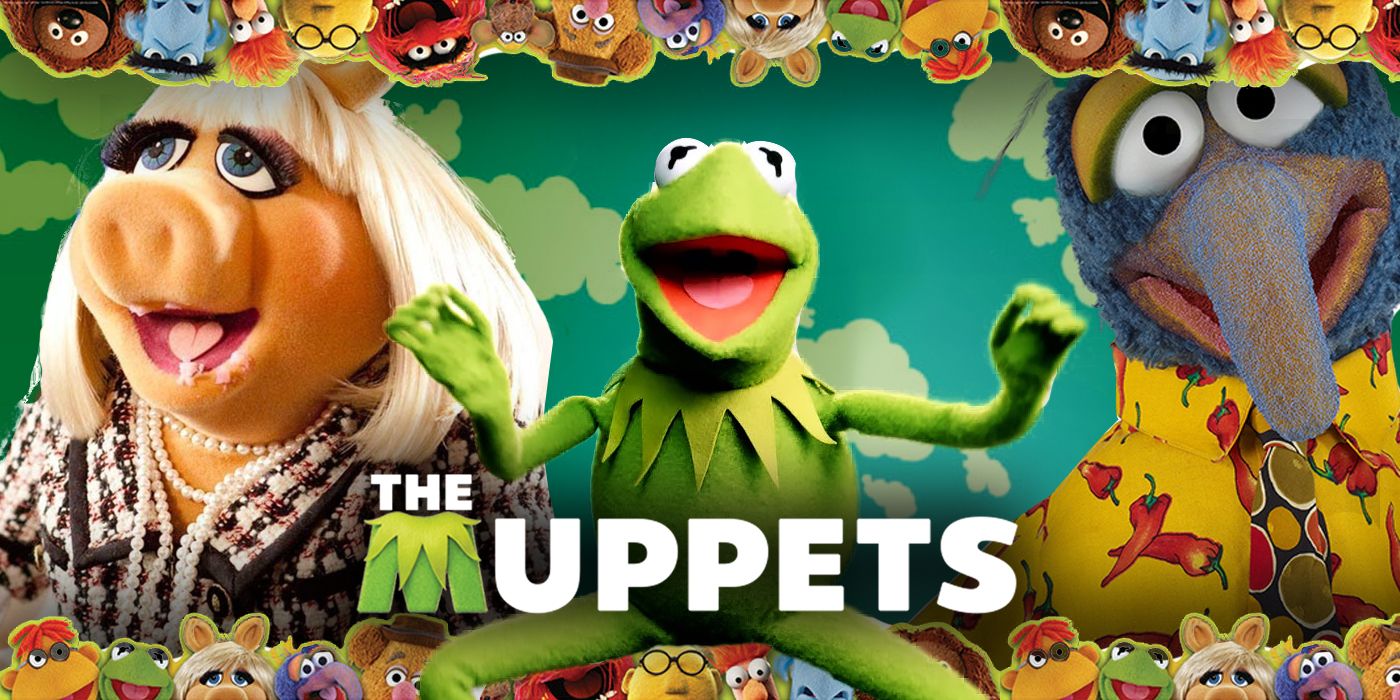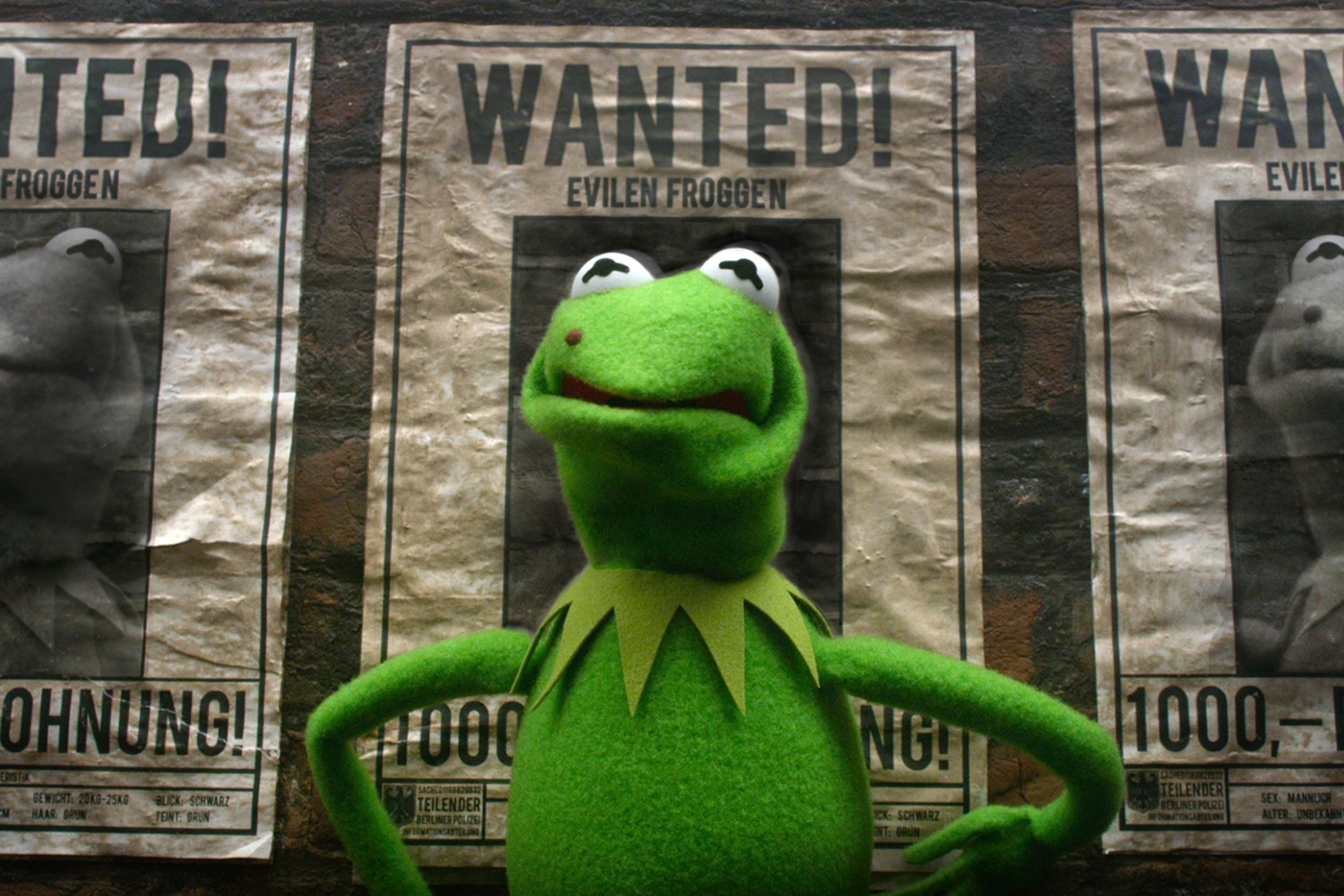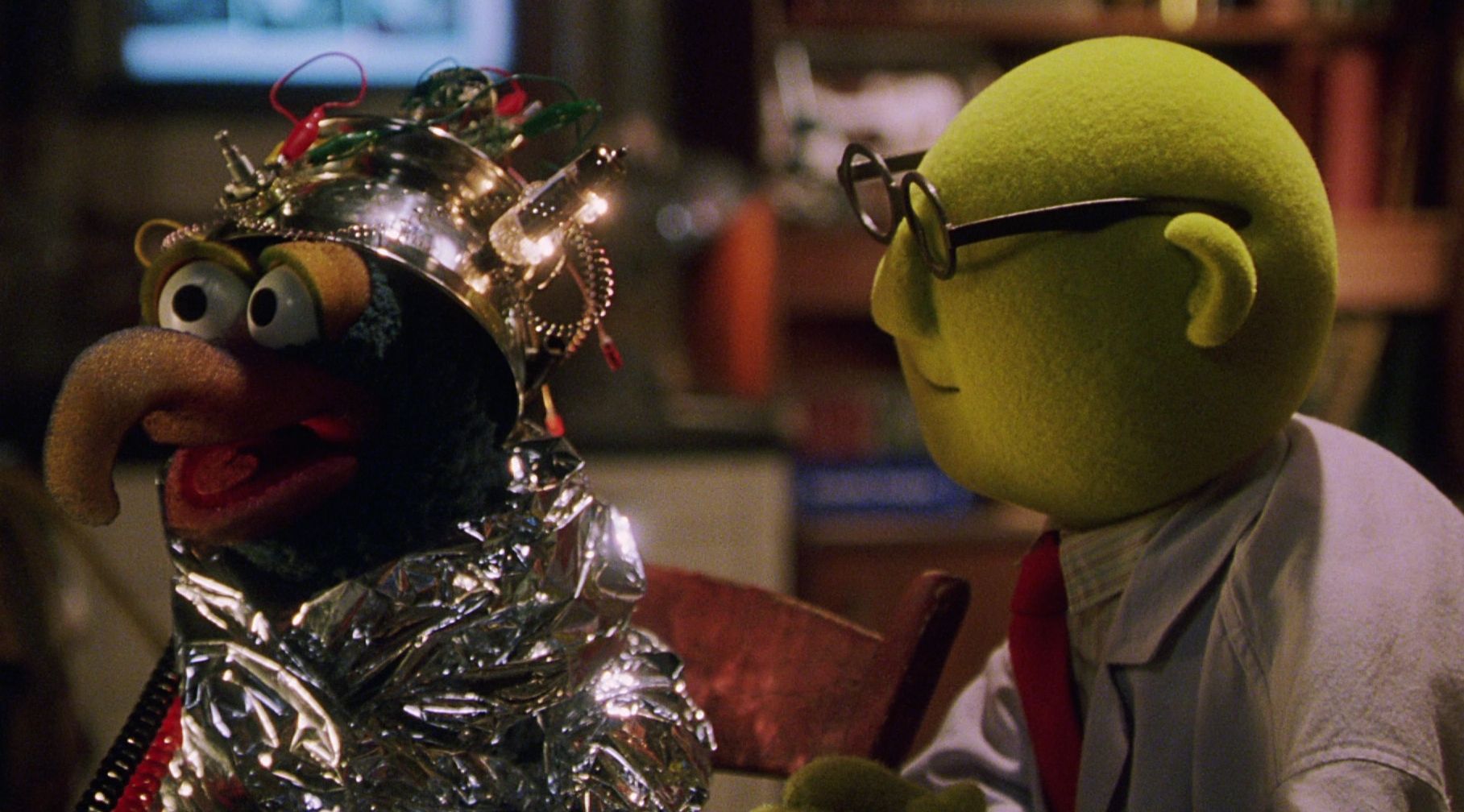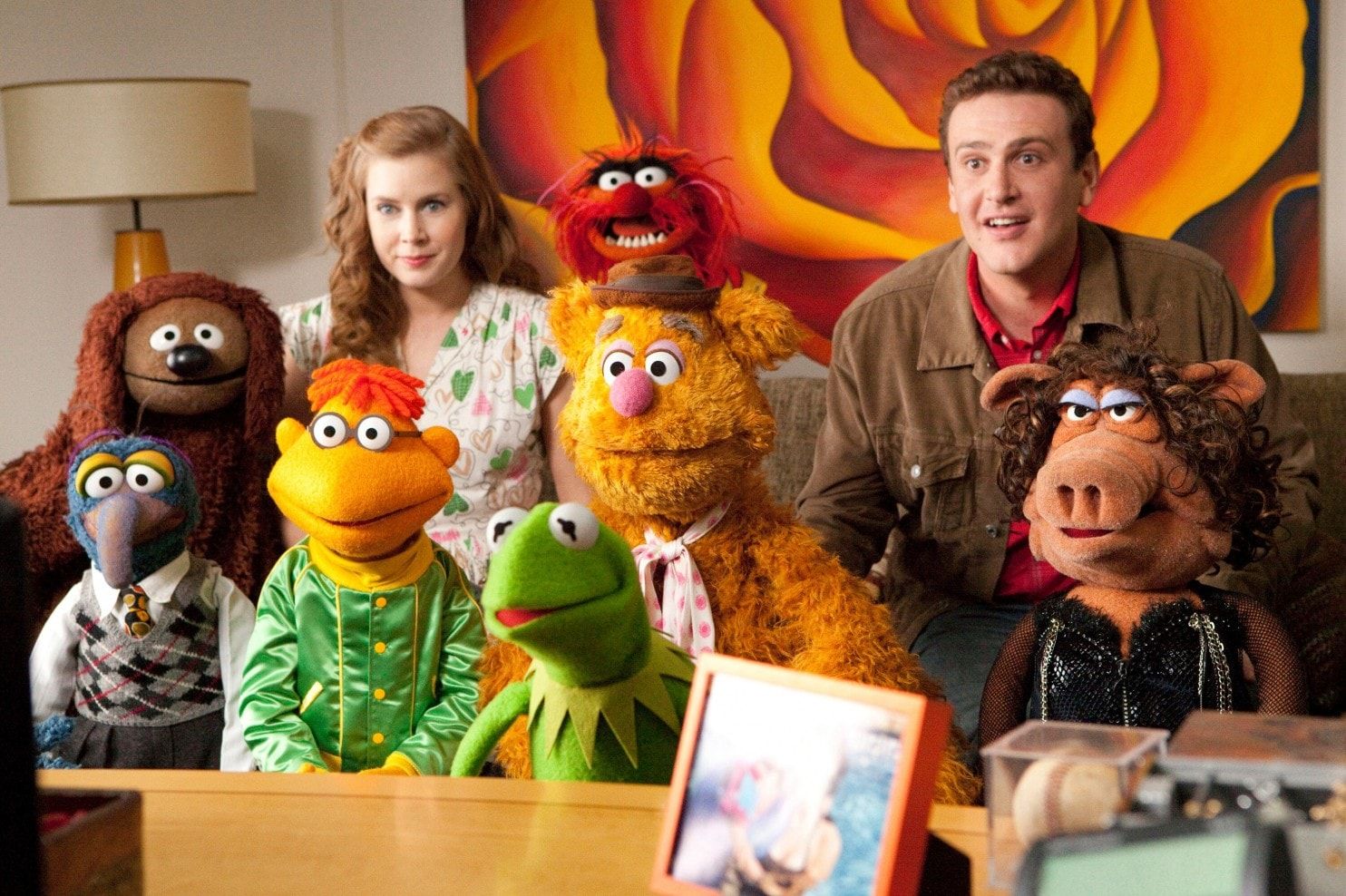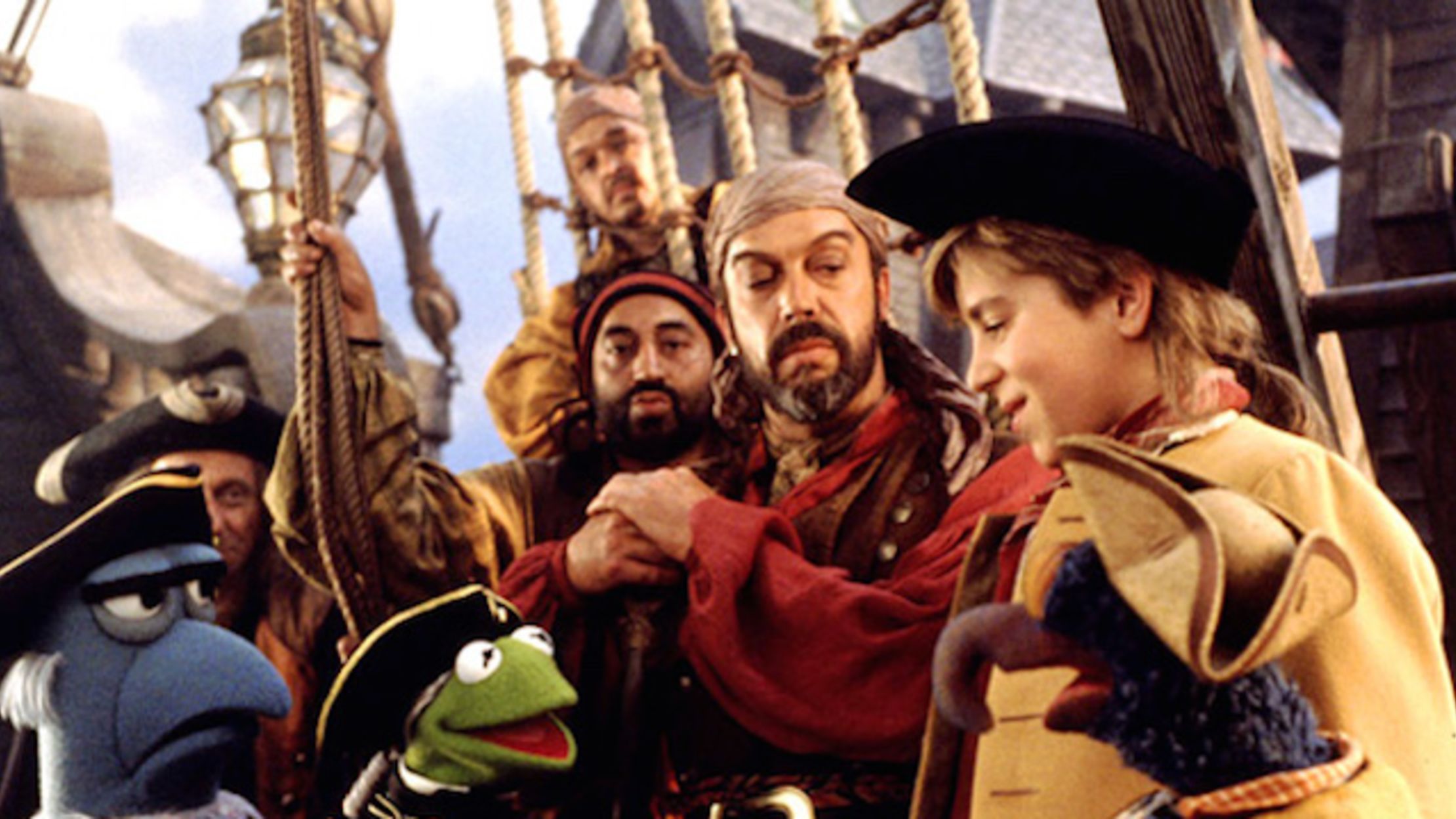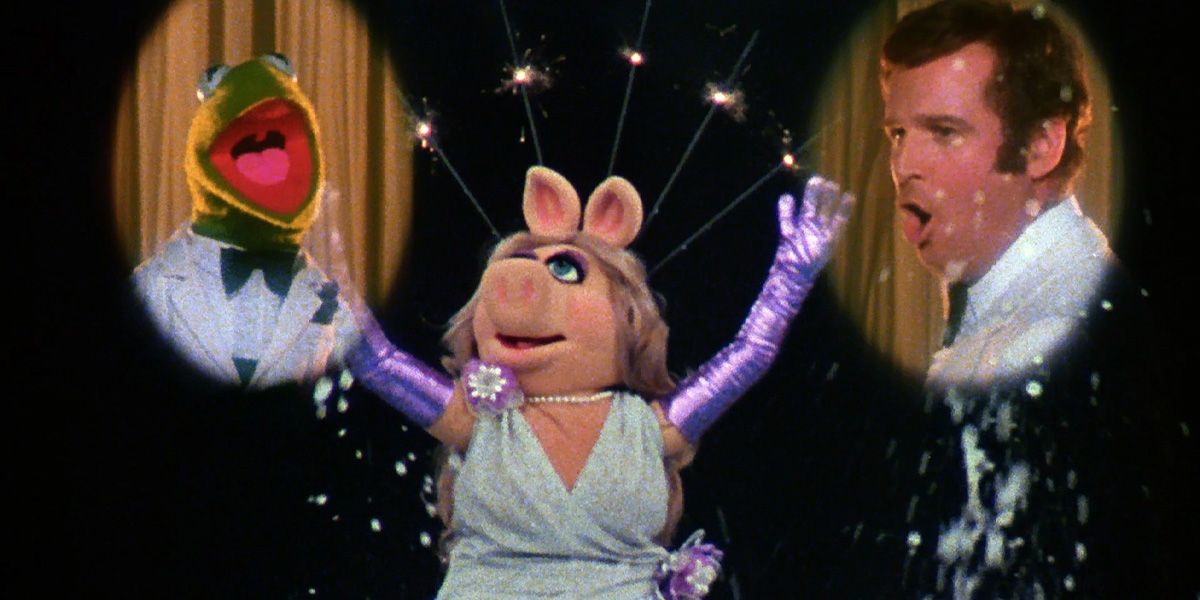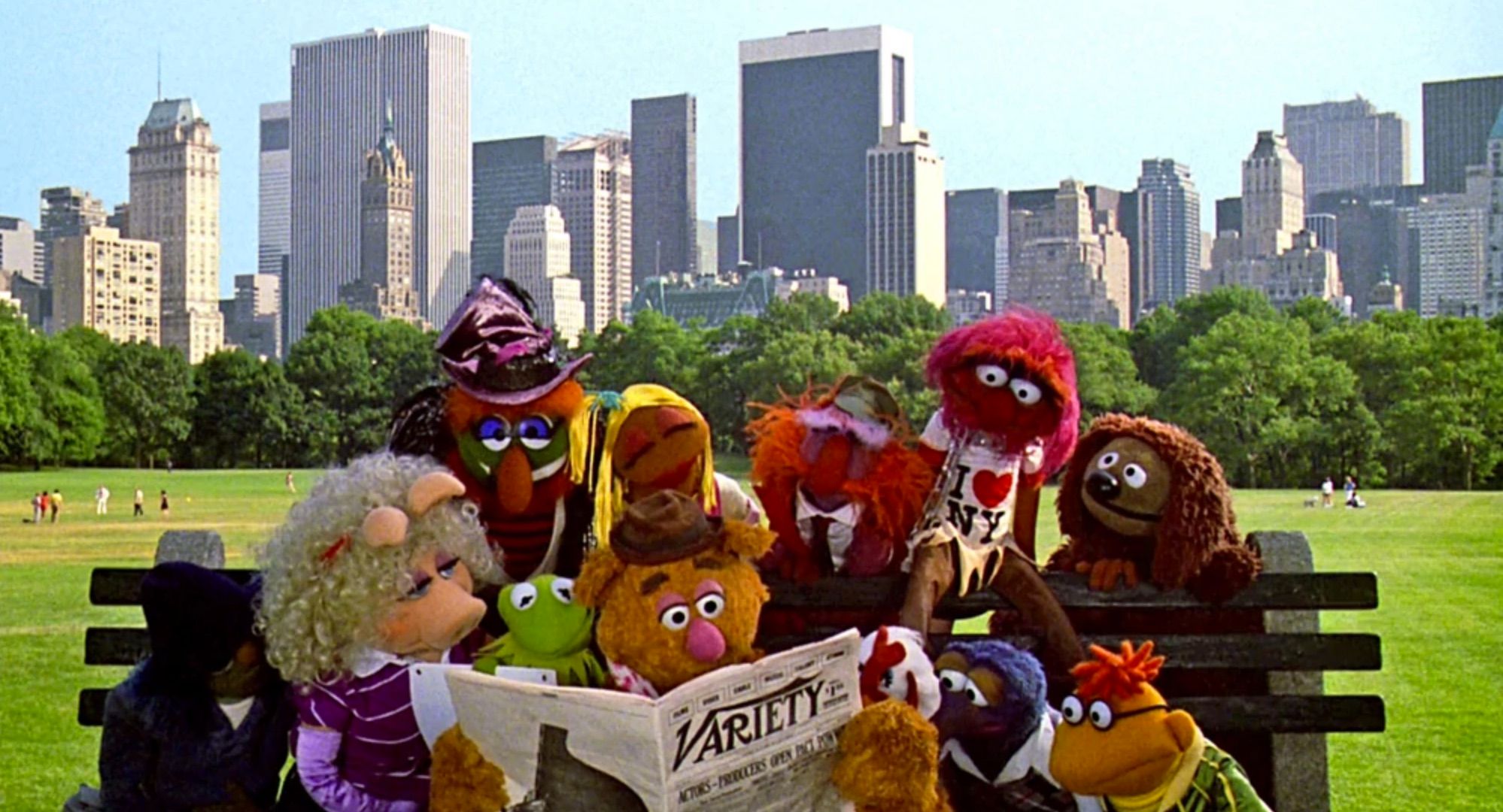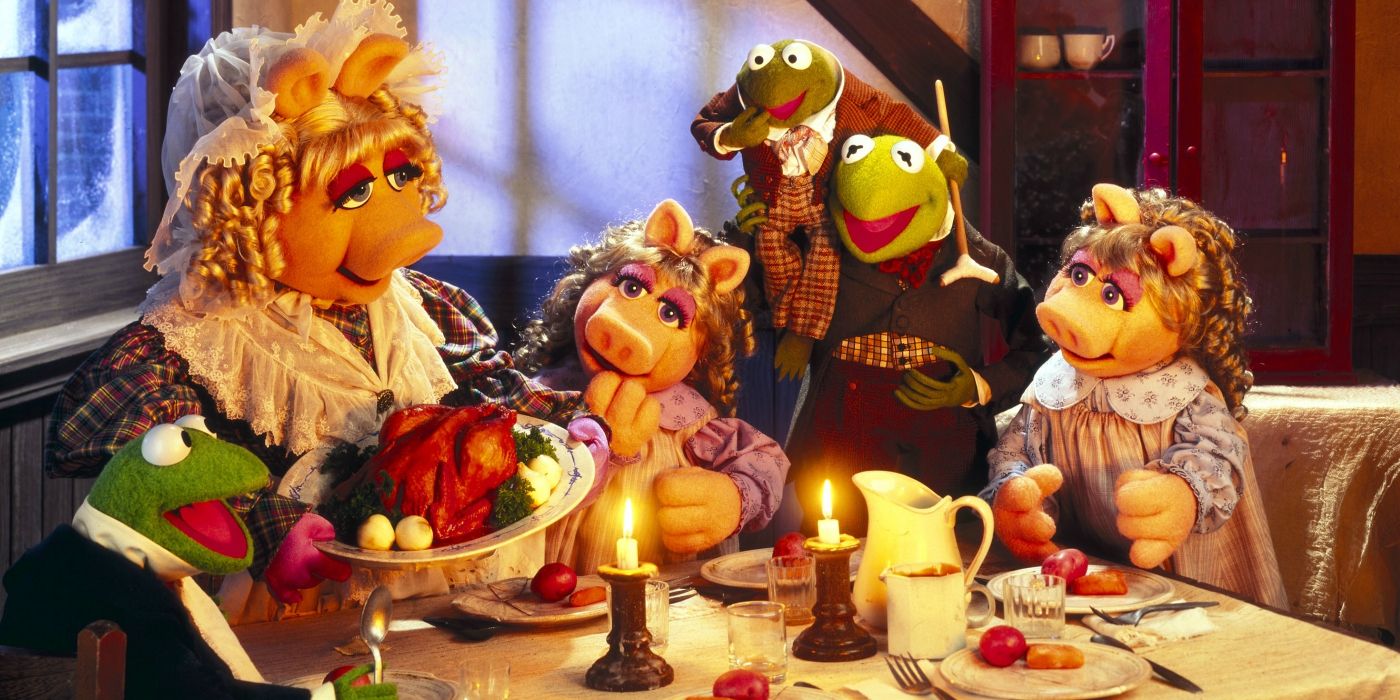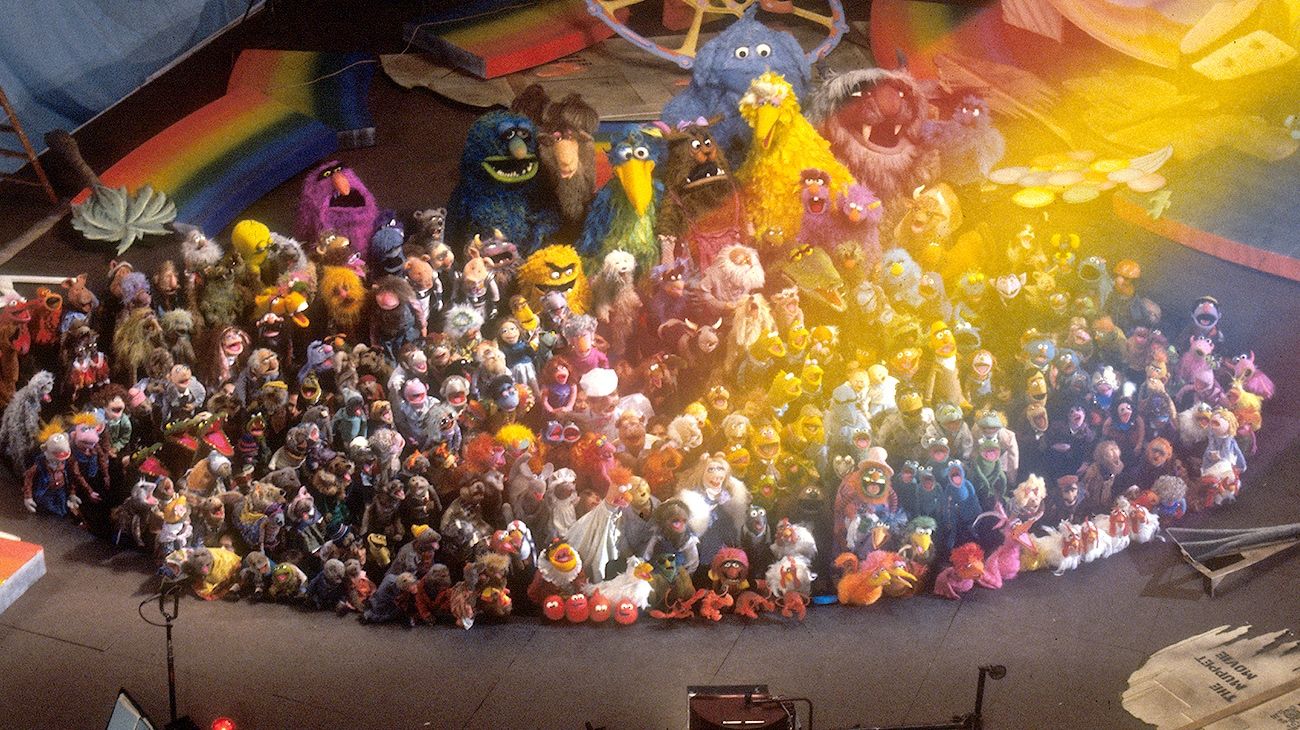After numerous attempts to launch a puppet-centric variety series following the runaway success of Sesame Street for children, Jim Henson changed that state of television when The Muppet Show debuted in 1976. With instantly iconic characters and a loyal group of puppeteers that embodied them, The Muppet Show was a dominant force within entertainment culture. A transition to film was only natural, and in 1979 the Muppets headed to theaters with The Muppet Movie.
In the more than forty years since, The Muppets franchise went through distinct eras with different creative forces at the helm. Henson and his original collaborators crafted three films together throughout, and shortly after, the production of the original series. Henson’s son Brian Henson took over the franchise in the early 1990s, reimagining classic literature stories with Muppet characters. Disney took a stab at relaunching the film series beginning with The Muppets in 2011, and while several new television projects have launched on Disney+ recently, it's been seven years since a new Muppet movie hit theaters.
The Muppets have inspired countless extended specials and made-for-television films, some great (Emmet Otter’s Jug Band Christmas) and some not-so-great (Remember The Muppets’ Wizard of Oz, featuring Quentin Tarantino?), but the eight films made for theatrical release are interesting time capsules of their eras. The Muppets have always kept up with current events and entertainment trends, and the films contain in-jokes, references, and cameos representative of when they were released.
With The Great Muppet Caper returning to theaters for its 40th anniversary, here are all eight Muppet movies ranked worst to best.
8. Muppets Most Wanted
The second film of Disney’s rebooted series is an uninspired rehash of prior successes. Trying to emulate the zany crime plot of The Great Muppet Caper and retain the emotional stakes of Kermit and Miss Piggys’ romance from Muppets Take Manhattan, Muppets Most Wanted mostly relies on celebrity cameos and a few standout musical numbers to justify bringing these characters back for another adventure. The opening number mocks the notion of unnecessary sequels, but ironically that’s exactly what Muppets Most Wanted is.
Fun songs can’t justify a lazy plot, which follows the Muppet troupe on a European tour and serves no purpose other than to transition them between bits. The recent films attracted criticism from legacy Muppet performers, including Frank Oz, for not putting as much care into the actual puppetry, and the interpretations in Muppets Most Wanted feel closer to impersonations than actual performances. Kermit is often serious to the point of dullness, Piggy is heightened and without depth, and the rest of the characters are mostly relegated to single jokes.
Unfortunately, the emotional stakes are just as artificial as the performances; after stitching together sketches of the Muppets in various wacky European locations, the film can’t justify bringing them back together for an emotional conclusion at Kermit and Piggys’ wedding. If there’s one truly redeeming quality, Ricky Gervais is truly wonderful as the insecure master thief Dominic Badguy, and Kermit’s doppelganger Constantine is the rare example of a fully developed new Muppet character created in the post-Jim Henson era.
7. Muppets From Space
The subtitle of Muppets From Space reads “it's not as deep as you think,” and unfortunately you can say the same thing about the movie. Muppets From Space has a solid foundational idea: Gonzo has never been taken seriously by his fellow Muppets and wonders if his “quirks” might be better accepted by his birth family. Unfortunately, this is a storyline that would work better as a subplot in a more involved narrative, because at 87 minutes Muppets From Space runs out of iconic events to recreate with Gonzo-like creatures pretty quickly (although the Noah’s Ark parody in the opening scene is terrific).
When crafting the original show, Henson emphasized that the characters were mature and developed beyond their standout humorous characteristics, but the emotional stakes of Muppets From Space are cutesy and disappointingly formulaic. It’s a given that the Muppets will end up supporting Gonzo by the end of the film, and there’s not a strong enough inciting incident to trigger his soul searching. The attempts at a sincere reckoning where Gonzo is forced to choose between families never has any stakes because his loyalties are never in doubt.
There are a few fun sequences, including an extended prison escape in which Kermit and Fozzie use invisibility spray. The film also benefits from a beefed up role for Rizzo the Rat, who became a more prominent character within the Brian Henson films, and Jeffery Tambor completely understood the assignment when he was cast as a Men in Black-style government agent begging to be taken seriously. There’s enough original ideas to make Muppets From Space entertaining, but of all the films it feels the closest to the small screen television specials.
6. The Muppets (2011)
The 2011 soft reboot of The Muppets is a film that suffers upon repeated viewings. Initially, the retooling of the plot of The Muppet Movie as a reunion show that reunites all of the characters is a charming hook, but other than nostalgia for the original era, the film doesn’t have any real insights on the characters. A film like Star Wars: The Force Awakens worked with a similar approach because Rey, Finn, and Kylo Ren all had interesting character arcs of their own, but The Muppets almost exclusively stars legacy characters and new characters that are already obsessive Muppet fans. There’s no gateway for new viewers.
However, seeing the characters brought together again is relatively entertaining considering how uncynical the approach is (there’s virtually no mention of social media). Some of the character introductions are underdeveloped (Rowlf sleeping for the events in between is a fun gag, but he’s not given anything else to do), but in general the film does a good job balancing the entire ensemble. The celebrity cameos are actually somewhat inspired; Jack Black showing up as one of Animal’s friends at an anger management clinic is a funny appearance that actually develops one of the characters.
Although some of the recreations are overtly sentimental, the final rendition of “The Rainbow Connection” hits the right nostalgic note by involving both the full cast and the audience. If Muppets Most Wanted felt like it was mining Muppet highlights in place of actual creativity, The Muppets at least has its heart in the place in honoring their history. As for “Man or Muppet,” there’s really nothing to say other than it was a completely deserved Oscar win.
5. Muppet Treasure Island
Prior to Pirates of the Caribbean: Curse of the Black Pearl, good pirate movies had been rare since the Golden Age of Hollywood, as for some reason swashbuckling maritime action struggled connecting with audiences, and resulted in disasters like Pirates! or Cutthroat Island. The fact that Muppet Treasure Island is one of the better ones speaks more to the weakness of the genre, but the film itself is surprisingly faithful in adapting the classic characters of Robert Louis Stevenson. Tim Curry gives a tour-de-force performance as the enigmatic, dangerous Long John Silver, and Kevin Bishop perfectly captures the shattered innocence of young sailor Jim Hawkins.
That’s also the biggest issue with Muppet Treasure Island: it's barely a Muppet movie. While The Muppets Christmas Carol balanced human and Muppet characters in the pivotal roles, Muppet Treasure Island plays it as a straighter adaptation that just happens to feature Muppets as some of the key characters. Both films use Gonzo and Rizzo as narrators that insert self-aware jokes about the source material, but the other characters show up with the only joke being that they’re Muppets playing established characters. Kermit is wisely cast as the mentor Captain Alexander Smollett, but Piggy doesn’t even show up until near the conclusion.
The film can’t be judged only for how it utilizes the Muppet characters, but the frantic comedic style just doesn’t translate as well to human characters. However, as a family swashbuckling adventure film Muppet Treasure Island is a blast, and like the best Muppet installments there’s a surprisingly dark edge to some of the physical humor, with characters being dismembered and tortured. Is it weird to be completely invested in the final duel between Kermit and Tim Curry?
4. The Great Muppet Caper
The Great Muppet Caper is a novelty among the early films. It was the cinematic directorial debut of Jim Henson himself, and instead of focusing on the pressure of performing, the film spoofed classic journalism comedies like His Girl Friday and The Philadelphia Story. It was a beneficial new spin, as the Muppets are well-suited for a comedy of errors. Casting Kermit, Fozzie, and Gonzo as lead investigators gives them different motivations than preparing for a stage show.
It’s impossible to talk about The Great Muppet Caper without bringing up the incredible performance by the late great Charles Grodin at the center. There’s a reason why the film was brought up so frequently upon the tragic news of Grodin’s passing: not only did it introduce him to a new generation of viewers, but he keeps up with the kinetic frequency of the Muppets’ comedy while retaining the inherent humor that he’s a human playing opposite puppets. It’s a truly wonderful performance, as unlike Jason Segal or Michael Caine who are called to play things closer to the heart, Grodin had to emulate the zaniness of the Muppets themselves.
Henson’s knack for technical innovation is still impressive 40 years later; the standout underwater musical number is beautifully constructed, and the hand-to-hand combat is just as well-choreographed as any number of 80s action films. However, as a result of Henson’s high frequency of jokes, the film is light on story until the final act in which the Muppets are tasked with a jewel heist.
3. The Muppets Take Manhattan
While the story of The Muppets Take Manhattan is fairly similar to The Muppet Movie, in that it revolves around keeping the gang together in preparation for a performance that will save their show, it's a formula that works. There’s a central tension around wrangling the various absurd personalities together, and both films use the challenges for humor before a touching conclusion when the Muppets actually pull off something beautiful. The Muppets Take Manhattan is unafraid to put the characters in peril; the threat of losing touch and going their separate ways is present throughout.
Released in 1984, The Muppets Take Manhattan had the benefit of debuting after the show had concluded, and the film uses developed versions of the characters that had already performed together for years. While Jim Henson kept more relentless pacing, Frank Oz is the stronger director of a structured dramatic film. The characters are forced to do a bit of soul searching as they attempt to put on a Broadway production, before ultimately finding reasons to stay together.
That’s not to say that The Muppets Take Manhattan is overly dour in any way, because it boasts some of the funniest sequences in the entire franchise, including Piggy’s retail misadventures with Joan Rivers and the running gag of the Swedish Chef working behind the counter at a crappy movie theater. Ending with a big stage production and a wedding between Kermit and Piggy was not only a show-stopping conclusion, but a great wrap up to the initial series of films. Also: Muppet Babies. Before they were merchandised to death, they were really damn cute.
2. The Muppets Christmas Carol
The Muppets Christmas Carol is a bonafide holiday classic and one of the stronger adaptations of the Charles Dickens story. Michael Caine is truly phenomenal as Scrooge; he’s just nasty enough that his threats to the Muppet characters are both funny and menacing, and his redemption is handled delicately. Gonzo and Rizzo keep things light throughout the flashbacks to Scrooge’s youth, and Gonzo’s bit about actually being Charles Dickens is a clever framing device that doesn’t overstay its welcome.
Compared to Muppet Treasure Island, The Muppets Christmas Carol finds natural ways of integrating the Muppet characters. Using Kermit as Bob Cratchit brings his essential earnestness to a matured, fatherly role, and relying heavily on Robin as Tiny Tim was a risk that paid off. Some of the recastings are just downright brilliant (Fezziwig is now Fozziewig, Statler and Waldorf are the shrewd Marley Brothers), and the meticulous reimagining of 19th Century London features many new character designs.
The songs are also strong, including the tear jerking “The Love We Found” which was included as a deleted scene on the initial DVD release, but lost in subsequent transfers. Although the Muppets have a storied history of Christmas variety specials, The Muppet Christmas Carol is just a great movie period, and a good entry point for new fans to discover the versatility of the characters.
1. The Muppet Movie
The Muppet Movie is the perfect distillation of what makes the characters endearing. It's the story of outsiders who haven’t found a community, and the origin story perfectly establishes how doomed they’d be on their own. Kermit and Fozzie embarking on a road trip that introduces each of the characters highlights their individuality, and it fleshes out relationships that were only hinted at within the show. While it's more than a “best of” collection, The Muppet Movie is able to condense five seasons of relationships into a concise, three-act structure.
It’s also just a great movie, and makes use of the medium in ways the show couldn’t. The frequent fourth wall breaks (such as Kermit obtaining the film’s actual screenplay) lean into surrealism, and the cameos offer brief instances of humor instead of having a guest performer appear throughout an entire episode of the show (including an all-time great Steve Martin moment). Director James Frawley wasn’t directly involved with the original show’s production, but he focused on the recurring bits before the Muppets performed together for the first time.
The technical marvels on The Muppet Movie were breakthroughs at the time, as even getting Kermit to sit on a log or ride a bicycle required groundbreaking staging. It embodies why these characters are unique and justifies bringing them to the big screen, and the satire of film production prevents it from getting too saccharine. It’s a cinematic classic that holds up over four decades later as the best translation of the Muppets to the big screen.

